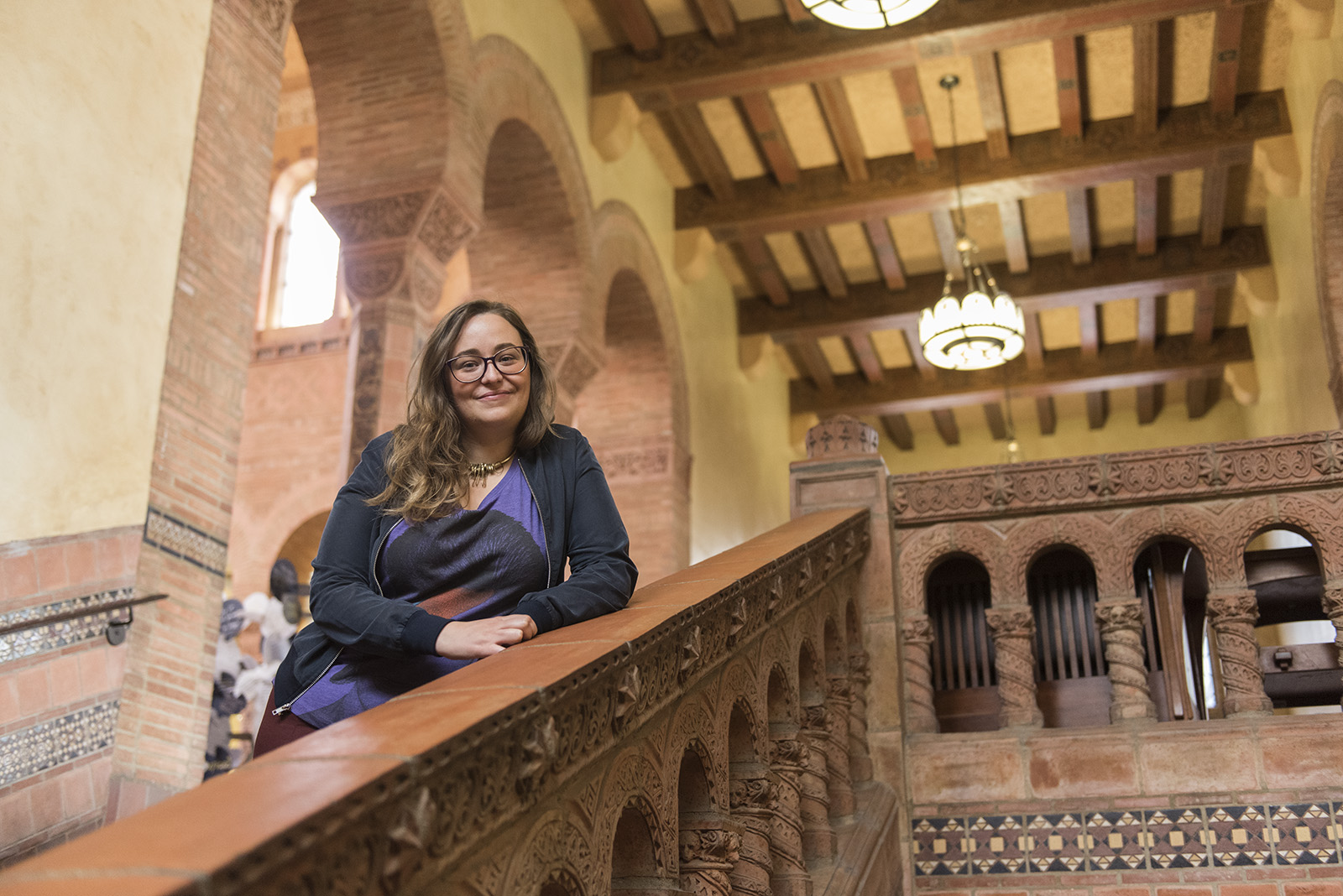UCLA alumna premieres film shining light on story of Franca Viola

UCLA alumna Marta Savina directed a film based on the true story of Franca Viola, an Italian woman who refused to marry her rapist. She learned about Viola’s story in a bookstore in Florence, Italy. (Miriam Bribiesca/Photo editor)
By Olivia Mazzucato
April 24, 2017 8:45 p.m.
Marta Savina was browsing through a bookstore in Florence, Italy, when she came across the story of Franca Viola.
The UCLA directing alumna picked up a book about women who changed history – a subject that already interested her – and randomly opened it to the story of Viola, a Sicilian woman who was the first Italian woman to refuse what was called a “reparatory marriage” to her rapist, even though such marriages often took place in 20th-century Italy.
After reading about Viola, Savina said she knew hers was a story she had to tell.
“We tend to think of these people that shape history as very outspoken and very loud and very assertive,” Savina said. “And here was this 17-year-old Sicilian girl, very quiet, who has never spoken publicly, and yet she really triggered a social revolution with the power of just saying no.”
The resulting project was “Viola, Franca,” Savina’s 15-minute thesis film that she co-wrote and directed. The film premiered Saturday at the Tribeca Film Festival in New York.
Viola’s case is well-known in Italian history, said Italian and gender studies professor Lucia Re. Before Viola, women were expected to marry their rapists to restore the woman’s honor. The Italian penal code also stated that if the rapist and woman consented to marry, the rapist was cleared of all charges, Re said.
Viola’s criminal case found her rapist guilty, sentencing him to 11 years in prison and later helped ensure the abolition of the article of the penal law that permitted reparatory marriage in 1981, Re said.
“I’m glad to hear about this film,” Re said. “There hasn’t really been any in-depth study of (the case). There was a lot of press coverage and some of it was pretty sensationalist, but there is no thorough historical, cultural or feminist study of the case.”
Savina went to the National Central Library in Florence after learning Viola’s story and read newspaper articles and books about the case. She also spoke with the real Viola, who still lives in the same Sicilian town, though she does not speak publicly about her experience.
Savina approached the narrative from a minimalist perspective, given the large scope of the story and the limited time frame of the film, she said.
Co-writer Andrea Brusa helped with this narrative minimalism by focusing on simplifying the story to essential plot points. Brusa honed the narrative so that it could be described in one guiding sentence.
“This is the story of a woman who decides to stand up and decide for herself for the first time in her life,” Brusa said. “Every single beat, every single scene, every single sequence has to deal with that.”
The film was a difficult undertaking – not only did Savina have to pare down the almost-two-year story that included both Viola’s assault and the subsequent trial, but she also chose to film the period piece in Sicily.
Savina took a leave of absence from UCLA to travel to Sicily, recreate costumes and find period-appropriate locations. The success of the film in the face of the production obstacles is largely due to Savina’s dedication as a director, Brusa said.
“She constantly was absolutely confident and passionate about it,” Brusa said. “But the confidence of a mature, professional director, not a student director that is making a thesis film.”
Although she was excited for the film premiere at Tribeca, Savina is also focused on another screening – in December, she plans to show the film in Alcamo, Italy, the town where the story takes place and the home of the real Viola.
“I’m more nervous about that than about premiering at Tribeca,” Savina said. “But the film really is a love letter to her, and I just made it a point of staying away from everything that could be voyeuristic and exploitative, and so I hope that she’ll like it.”
For now, she hopes the film will inspire young women and girls who see the film and help them find their own inner strength, Savina said.
“I hope they see in this character a beacon of light and of hope,” Savina said. “I hope they take away … (that) you can actually stand up for who you really are without needing to feel ashamed.”


